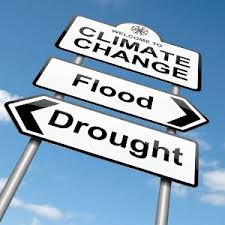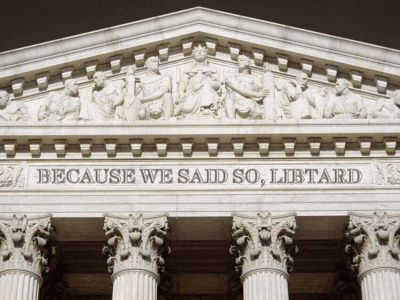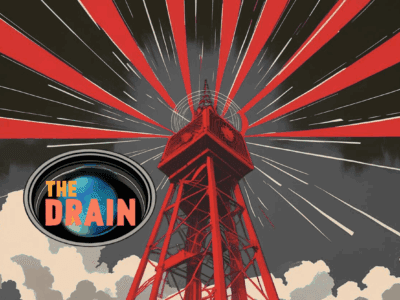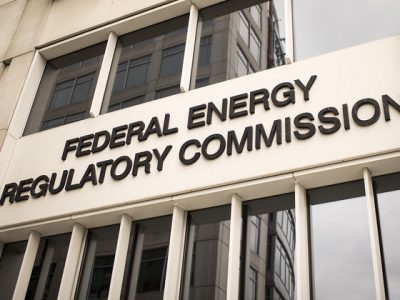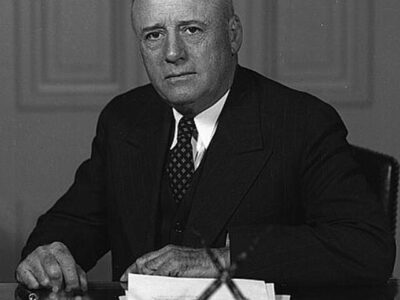Region: National
Can States Rebuild the Barn?
Multistate compacts might be a critical way to help replace lost federal capacity – but we need more details.
A couple of weeks ago I asked how we can stand up institutions in light of the Trump Administration’s destruction of environmental agencies. As House Speaker Sam Rayburn famously said: “any jackass can kick a barn down. It takes a carpenter to build one.” And not a moment too soon. EPA Administrator Lee Zeldin has …
Continue reading “Can States Rebuild the Barn?”
CONTINUE READINGWhy Repeal the Endangerment Finding?
The aims may be overturning Mass v. EPA and avoiding new rulemakings.
Much will be said about the weakness of the various justifications EPA and the Department of Energy offered yesterday about why greenhouse gases do not endanger public health and welfare under the Clean Air Act. Those justifications are, indeed, remarkably weak. For example, DOE’s argument that economic damages appear to be lower than economists estimate …
Continue reading “Why Repeal the Endangerment Finding?”
CONTINUE READINGWorld’s Biggest Court Opinion on Climate
The Drain is a weekly roundup of environmental and climate news from Legal Planet.
For more than 24 hours last week, my social media feeds were a wall of jubilant reaction to the World Court’s big climate opinion. People who work on, and care about, the climate crisis needed some good news, clearly. That begs the question, is the advisory opinion really as big a deal as people wanted …
Continue reading “World’s Biggest Court Opinion on Climate”
CONTINUE READINGDoes Federal Law Still Preempt State Standards Relating to Fuel Efficiency?
The answer may depend on what being “in effect” means.
If a tree falls in the forest but no one hears it, does it still make a sound? If a law hasn’t been formally repealed but can be violated with complete impunity, is it still in effect? This matters because federal law preempts state fuel efficiency standards if, but only if, a federal standard is “in effect.” Congress just eliminated any penalty for violating the federqal standards. Which means at best they have only a kind of ghostly existence, but no substance to speak of.
CONTINUE READINGAnother Attempt to Measure NEPA’s Impact
This most recent report is better, but still has significant flaws
The Breakthrough Institute has produced another report on litigation under the National Environmental Policy Act (NEPA), building on a report it prepared earlier, which I sharply criticized in this prior blog post. The updated report is a mixed bag: It doesn’t solve many of the methodological issues I identified in the earlier blogpost; it does …
Continue reading “Another Attempt to Measure NEPA’s Impact”
CONTINUE READINGThe Unitary Executive Theory As Government-Smasher
The Supreme Court’s Imperial Presidency drive isn’t formalism: it is calculated to destroy the state.
It is a misnomer to discuss the current Supreme Court’s “jurisprudence” on anything, as if it has an approach to any legal question other than, “because we said so, libtard.” But in the wake of the Court’s lawless and arbitrary use of the shadow docket to destroy statutes and precedents for the purpose of giving …
Continue reading “The Unitary Executive Theory As Government-Smasher”
CONTINUE READINGWhy Did Congress Defund Public Media?
The Drain is a weekly roundup of environmental and climate news from Legal Planet.
We just witnessed the untimely death of a 57-year-old American institution that has made life better for just about everyone. President Lyndon Johnson announced the creation of the Corporation for Public Broadcasting in 1967 to “assist stations and producers who aim for the best in broadcasting good music, in broadcasting exciting plays, and in broadcasting …
Continue reading “Why Did Congress Defund Public Media?”
CONTINUE READINGPerhaps the Least Qualified FERC Nominee in History
Trump’s nominee seems to have essentially no relevant experience or expertise.
LaCerte has had one brush with energy regulation. He was a special counsel at the big ouil and gas law firm, Baker Botts for two years, starting in January 2023. While there, he worked on energy litigation and environmental safety and incident response issues. None of that has much to do with FERC,
CONTINUE READINGHow To Beat A Jackass
Trump’s destruction of the federal government poses a hard question: how to quickly stand up robust institutions?
Sam Rayburn served nearly a half-century as a Congressmember, and still holds the record for the longest tenure as Speaker of the House. So he knew a thing or two about government. One of his aphorisms speaks powerfully to our age: “Any jackass can kick a barn down, but it takes a carpenter to build …
Continue reading “How To Beat A Jackass”
CONTINUE READINGThe Environment and the Rule of Law
Without the rule of law, environmental protection has no chance of succeeding.
It’s no coincidence that the environment and the rule of law are both targets, because environmental protection is particularly dependent on the legal system for support. There is a lot of wisdom to the slogan, “The Earth needs a good lawyer.”
CONTINUE READING




